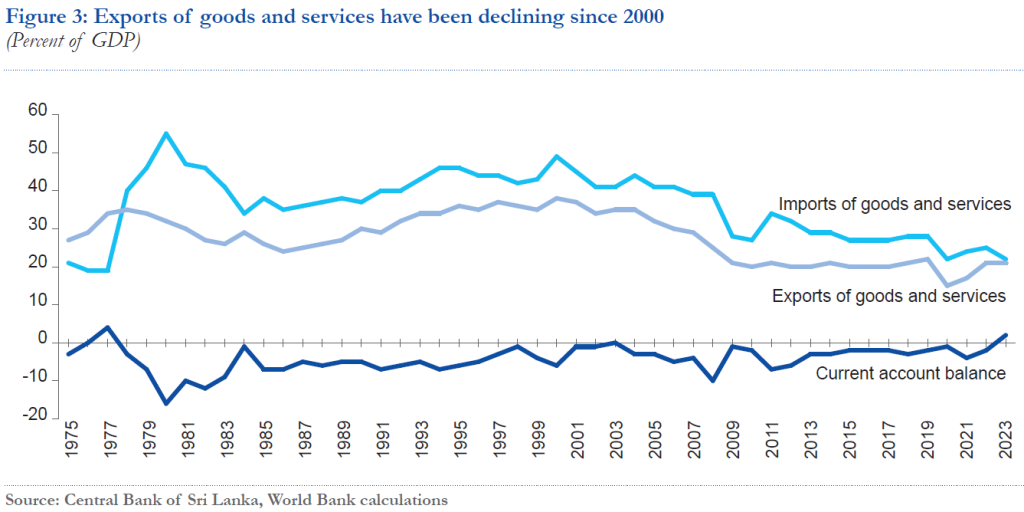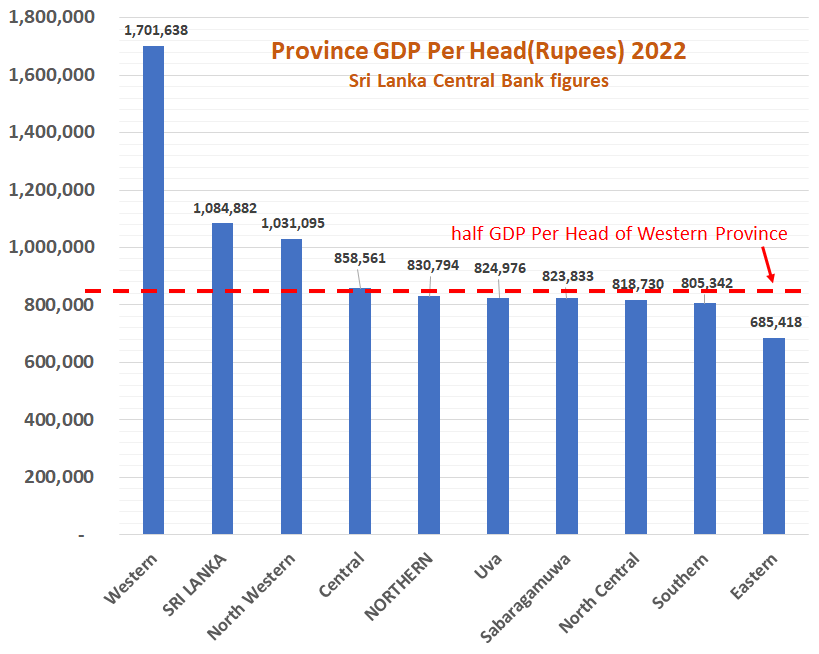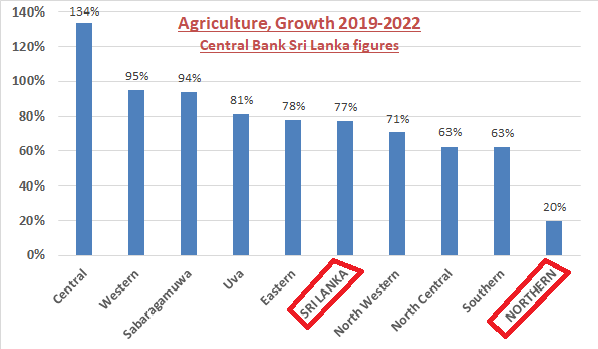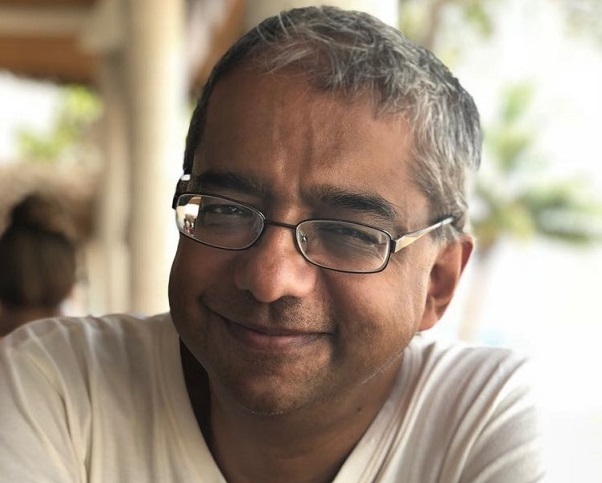By Jekhan Aruliah
I was listening to a very eloquent speaker on YouTube. He commented, as our public speakers often do, that we in Sri Lanka are a blessed nation. Blessed with abundant natural assets, our forests and beaches etc, and copious human talents. And yet this blessed nation is chronically poor and in 2022 became bankrupt.
This reminded me of the famous Aesop Fable, the story of the Hare and the Tortoise. The Hare, blessed with speed, lost a running race to the tortoise, blessed with attitude. The Hare, highly impressed by himself self-congratulating for his natural talents, went to sleep on the racetrack. Like the hare, the blessed Sri Lankan economy dozes. Our sleepwalking state is illustrated by statements in a World Bank report in October 2024, “Sri Lanka Development Update – Opening Up The Future”. This report comments the nation has been drifting for decades. The report says:
“Over the past two decades, exports (especially goods) performed poorly, and investment faltered. …. There has also been little export diversification – clothing and tea still dominate goods exports, and transport and travel dominate services.” Those who would celebrate our improving Current Account Balance should note this is linked to falling imports and not rising exports. A highly vulnerable trend that can reverse with the flash of a credit card.

This World Bank report states “Sri Lanka’s untapped export potential is about US$10 billion annually and tapping this potential could create an estimated 142,500 additional jobs..” US$10billion is more than 10% of Sri Lankan GDP! That, for the non mathematically minded, is “a lot”.
The report continues “At destination level, the largest portion of untapped export potential lies in Asia. In 2020, 70 percent of missing exports for Sri Lanka were accounted for by five destinations: China (US$3.5 billion), India (US$1.5 billion), Japan (US$1 billion), Indonesia (US$0.7 billion) and South Korea (US$0.5 billion). This points to a lack of active trade diplomacy in the region. Sri Lanka is exporting at potential to the USA, UK and Germany.”
Another World Bank report published in 2021, “At Your Service?: The Promise of Services-Led Development”, states in figures for 2017 the Sri Lanka export of services is largely low skill (“Low-skill Tradables” = Accommodation & Food; Transport & Storage). India’s is largely high skill (“Global Innovators” = Financial Services; ICT; Professional, Scientific & Technical Services).

The focus of my writing is the Northern Province, so let’s move our attention there. For this I came across another Central Bank report, “Provincial Gross Domestic Product (PGDP)1 - 2023” released on 20th December 2024. One often hears about the economically languishing Northern Province. Even measured by the national drift, the North drifts. Northern GDP growth rate suggests we in the North are the hare’s lazy brother.

Some in the Tamil Diaspora believe Northern poverty is a government plot. I think in reality it is mainly a failure by the private sector, including the economically powerful Diaspora itself. The North is not literally the poorest measured by GDP per head. The Northern, Uva, Sabaragamuwa, North Central and Southern Provinces are all about the same with GDP per head 50% of the Western Province.

But the poor Northern Province growth figures suggest it is heading that way. Particularly startling is Agriculture, supposedly the Northern bedrock, where growth is only one third the growth of that in the second worst province.

2024 ended in fancy Colombo hotels with the usual mutual admiration: presentation of awards, and much back patting of our commercial elites. Glasses were lifted to toast our magnificent natural and human assets and achievements. Glasses served, collected, and washed by low paid young people lacking other opportunities.
My late uncle, when we as children came from London to Sri Lanka on a short holiday in the 1970s, took us to the fresh fish market. A wonderful spectacle for us kids, more used to the 1970s UK’s breadcrumb encrusted processed fish fingers rather than anything with fins and scales. He gave us this advice: “Beware when someone pats you on the back. They are probably wiping their hands”
( — The writer Jekhan Aruliah was born in Sri Lanka and moved with his family to the UK when he was two years of age. Brought up in London, he graduated from Cambridge University in 1986 with a degree in Natural Sciences. Jekhan then spent over two decades in the IT industry, for half of which he was managing offshore software development for British companies in Colombo and in Gurgaon (India). In 2015 Jekhan decided to move to Jaffna where he is now involved in social and economic projects. He can be contacted at jekhanaruliah@gmail.com — )

